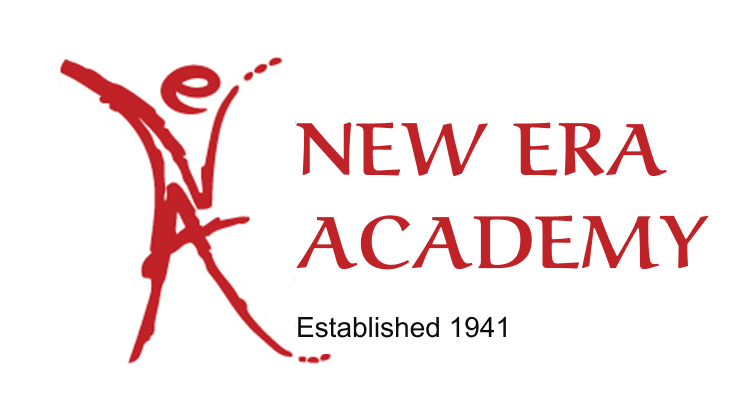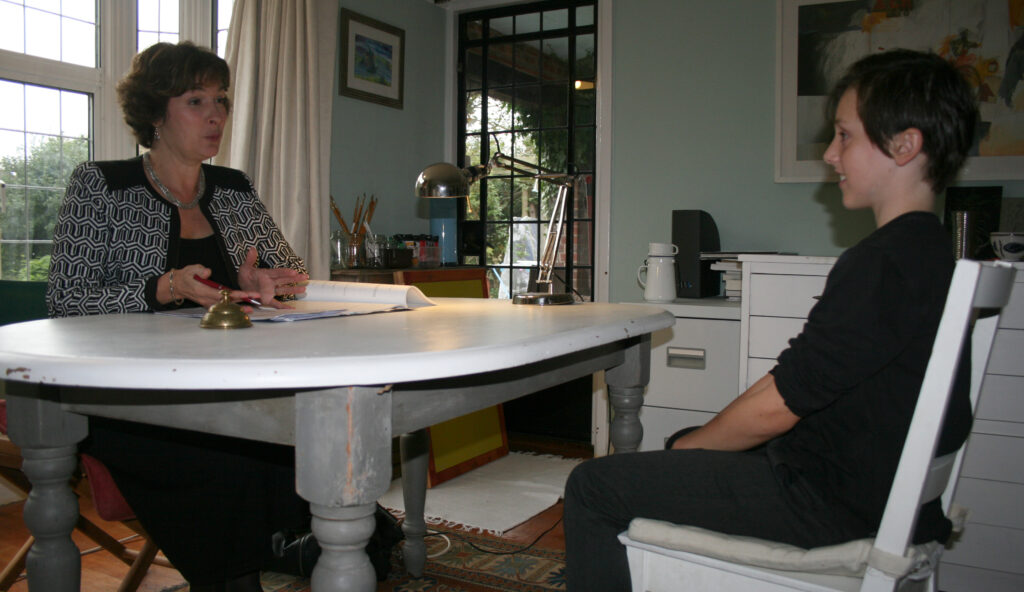Communication Exams
Communications Exams Create Orators & Gravitas
Communications Exams from New Era Academy are for learners to focus on practical and creative tasks and evaluate candidates’ skills in their respective fields. The communications exams for each discipline focus on learners’ abilities to communicate their ideas, listen, assimilate information, and respond appropriately. Our communications examinations focus on literary performances, like in Drama and theatre, and prepare the learners to focus on creative and practical tasks in real-life situations.
The communications exams syllabus is developed for learners to develop invaluable communication skills and confidence and to prepare them to progress in both the educational and professional arena.
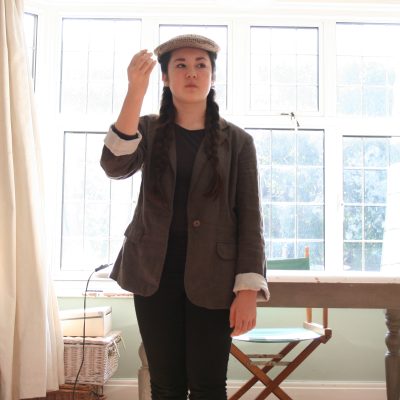
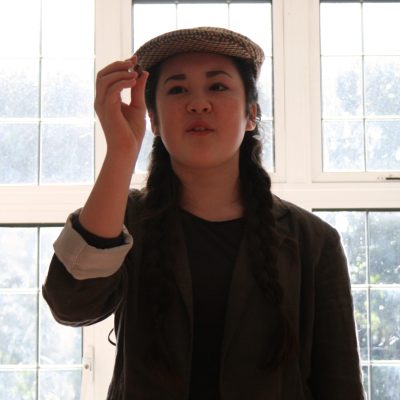
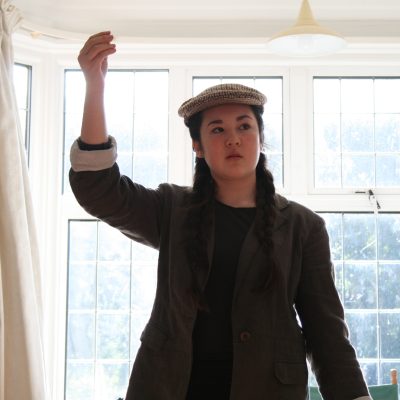
Speech & Drama
Communicating, Story-telling Through Speech & Drama
Speech is the vocalised form of human communication. It is one of the methods by which we share our speech and drama. Speech can vary according to where we live. Dialect adds colour to language. We use modulation to give variety to the voice. We support vocal communication with facial expression and through body language.
Drama is primarily thought of as a play. Finding the right voice for a character is essential so we look at the ‘givens’ from the playwright – period of play, age, status, and character personality. NEA’s Speech & Drama examinations incorporate verse and prose, speaking from memory, sight reading of verse and prose as well as dramatic works. Speech & Drama examinations sit well alongside our Acting examinations, which provide a firm focus on the techniques of acting as well as vocal communication.
Speech & Drama is a Confidence Springboard
Of course not everyone follows the path through to a professional career in the theatre. Those who lack confidence in everyday communication can use Speech & Drama as a tool or springboard to gain confidence in presenting themselves in today’s world, be it for business or the world in general. Spoken English and Interview Technique are ideal springboards and/or sit well alongside Speech & Drama examinations.
These examinations are progressive. Learners will memorise a piece of poetry and prose and as they progress through exams and for some later exams they will have the choice of an acting piece, and sight reading will be given, as well as discussion with the examiner.
Student Learning Objectives:
NEA’s Speech & Drama examinations are a good place to start for anyone interested in performance or communications in a vocational capacity. Allowing Learners to build confidence, gain an appreciation of poetry and literature, plays, vocal technique and enhance a learners understanding of the English Language through:
- Speaking of literature and poetry
- Looking closely at the English Language, how it is spoken and constructed
- Vocal technique
- How to communicate both one to one and to an audience
- Body language
- Planning and research
- Solo
- Preliminary | Transition
- Grades 1, 2, 4 and 5
(Awarded for Solo | Duologue ONLY)
- Grade 3 (Foundation)
- Grade 6 (Bronze) | Grade 7 (Silver) | Grade 8 (Gold)
- ANEA - Level 4 (Speech and Drama | Public Speaking |
- Diploma in Performance [Acting, Mime, Musical Theatre] )
- ANEA - Level 5 (Speech and Drama | Public Speaking)
- LNEA - Level 6 (Speech and Drama Teaching Diploma |
- Public Speaking Diploma)
- Between 8 and 30 points (subject to pass mark)
- Grades 6, 7, 8 ONLY
Public Speaking
For Learners who have the opportunity to take these exams before GCSE or A-Level they will benefit greatly from the skills they will develop. However, these exams can be taken at any time, the skills acquired being timeless and necessary.
This discipline is a cornerstone to our everyday interactions with those around us; no longer only the formalised debate or lengthy oration, but the aide to confidence when speaking in front of classmates, work peers in meetings, when presenting ideas and in most walks of business.
Public Speaking examinations train the Learner to shape ideas and present them calmly, clearly and coherently; to prepare concise and interesting presentations and to gain confidence when speaking aloud by knowing that detailed groundwork releases the panic of underprepared speaking.
The Learner will study how to use notecards with salient points to remind them of the direction and flow of their speech, and how to shape and formalise their thoughts and ideas into speeches of any length with clear beginnings, middles and ends. They will learn how to use their voice to best advantage, how the use of modulation, pitch, pace and tone will colour their speech and bring their subject to life, and how safely to project their voice to reach any size audience. Exercises in relaxation will help the most nervous speaker gain the confidence to speak with fluency and a steady pace.
Student Learning Objectives:
NEA’s Public Speaking examinations allow candidates to develop self confidence, communication and presentation skills as set out in the NEA Syllabus through:
- Vocal Techniques
- Self Confidence
- Planning
- Speech Contruction
- Presentation Skills
- Communication Skills
- Clear Speech
- Clarity of Though
- Sharing of Ideas
- Engaging Audience Interest
- Solo
- Preliminary | Transition
- Grades 1, 2, 4 and 5
(Awarded for Solo | Duologue ONLY)
- Grade 3 (Foundation)
- Grade 6 (Bronze) | Grade 7 (Silver) | Grade 8 (Gold)
- ANEA - Level 4 (Speech and Drama | Public Speaking |
- Diploma in Performance [Acting, Mime, Musical Theatre] )
- ANEA - Level 5 (Speech and Drama | Public Speaking)
- LNEA - Level 6 (Speech and Drama Teaching Diploma |
- Public Speaking Diploma)
- Between 8 and 30 points (subject to pass mark)
- Grades 6, 7, 8 ONLY
Interview Technique
An interview is a conversation between two or more people where questions are asked by the interviewer to elicit facts or statements from the interviewee. Interviews are a standard part of qualitative research. They are also used in journalism and media reporting and in various employment-related contexts, such as a job interview. Those wishing to attend further education may be interviewed to secure their place at college or university.
The NEA Interview Technique syllabus takes Learners through a process where they will learn the important aspects of taking part in an interview and the importance of self-presentation. A successful interviewee will be able to engage interest, possibly persuade and inform their interviewer, sharing their thoughts and ideas with clarity of thought, confidence and ease.
Student Learning Objectives:
- CV writing
- Preparing for and taking part in a formal interview
- Learning interview techniques
- Presentation skills
- Public speaking
- Relaxation techniques
- Receiving constructive and encouraging feedback.
- Solo
- Preparatory | Introductory | Preliminary | Transition
- Grades 1, 2, 4 and 5
(Awarded for Solo | Duologue ONLY)
- Grade 3 (Foundation)
- Grade 6 (Bronze) | Grade 7 (Silver) | Grade 8 (Gold)
- ANEA - Level 4 (Speech and Drama | Public Speaking |
- Diploma in Performance [Acting, Mime, Musical Theatre] )
- ANEA - Level 5 (Speech and Drama | Public Speaking)
- LNEA - Level 6 (Speech and Drama Teaching Diploma |
- Public Speaking Diploma)
- Between 8 and 30 points (subject to pass mark)
- Grades 6, 7, 8 ONLY
Reading
Our first experience of reading is being read to by our parents. This is where the imagination begins and is stirred. Words and sounds form pictures in the mind, be they from nursery rhymes or stories.
When we go to school, we develop these words and sounds by learning meaning, how to put them together to make sense. Our use of vocabulary increases and gradually we start to make up poems and stories for ourselves. As we grow up, we develop individual tastes in reading. Some prefer factual information through biographies or the world about us. Others prefer to be transported to other worlds.
Reading to ourselves is silent. If we are to share by reading aloud, we need to acquire the necessary skills of communication. We must lift the printed word off the page and share the content vocally and with facial expression. If we are sharing a novel, we need to visualise all that we are saying – inhabiting the characters, seeing all that is described.
With non-fiction, less emotion is involved as we may be giving information without bias to allow the listeners to form their own opinions. With verse, we need to understand the forms of verse and how we shape the poem through the use of verse pauses.
NEA’s reading exams will be engaging for those with an interest in books and literacy, performing arts, storytelling, and public speaking and sit well alongside Speech & Drama, Public Speaking, Spoken English and English as an Additional Language exams.
When sight reading is introduced, this is a new challenge. In the short time allowed for preparation within the examination, it is essential for the reader to have a method of deciding how the passage or poem should be read to convey the full meaning.
Researching material for reading aloud helps to increase literary knowledge. Reading aloud should be a pleasure for both the performer and the listener. During examinations, the Learner will use a piece of poetry or prose they have prepared and will also be given pieces of poetry and/or prose by the examiner during the examination.
Student Learning Objectives:
NEA’s Recital examinations allow Learners to develop technical, interpretation and communication skills as set out in the NEA Syllabus through:
- Literature
- Poetry
- Word recognition
- Performance
- Communication
- Solo
- Preparatory | Introductory | Preliminary | Transition
- Grades 1, 2, 4 and 5
(Awarded for Solo | Duologue ONLY)
- Grade 3 (Foundation)
- Grade 6 (Bronze) | Grade 7 (Silver) | Grade 8 (Gold)
- ANEA - Level 4 (Speech and Drama | Public Speaking |
- Diploma in Performance [Acting, Mime, Musical Theatre] )
- ANEA - Level 5 (Speech and Drama | Public Speaking)
- LNEA - Level 6 (Speech and Drama Teaching Diploma |
- Public Speaking Diploma)
- Between 8 and 30 points (subject to pass mark)
- Grades 6, 7, 8 ONLY
Spoken English
Developing good listening skills and clear speech is so vital in today’s multi-cultural world, Learners will develop clarity of thought and express their ideas with vocal variation.
A typical exam would cover sight reading, an informal talk and discussion with the examiner, Learners will be able to display their passion for a subject of their choice.
Student Learning Objectives:
NEA’s Spoken English examinations allow Learners to develop self-confidence and vocal communication skills as set out in the NEA Syllabus through:
- Listening
- Sight reading
- Development of clear speech
- Clarity of thought
- Constructing a talk
- Presentation Skills
- Vocal Techniques
- Solo
- Grades 1, 2, 4 and 5
(Awarded for Solo | Duologue ONLY)
- Grade 3 (Foundation)
- Grade 6 (Bronze) | Grade 7 (Silver) | Grade 8 (Gold)
- ANEA - Level 4 (Speech and Drama | Public Speaking |
- Diploma in Performance [Acting, Mime, Musical Theatre] )
- ANEA - Level 5 (Speech and Drama | Public Speaking)
- LNEA - Level 6 (Speech and Drama Teaching Diploma |
- Public Speaking Diploma)
- Between 8 and 30 points (subject to pass mark)
- Grades 6, 7, 8 ONLY
EAL- English as an Additional Language
To be able to communicate in a second language, be understood, show passion and fully engage with others in a second language is like inhaling a breath of fresh air, being able to enjoy others company, and those yours. To be successful in the workplace, at school and socially, understood, laugh and joke brings rich enjoyment into one’s life.
For Learners of all ages who need to improve their confidence and communication skills. These examinations are especially useful for speakers for whom English is their second language and to aid them in the development of good listening skills and clear speech that are so vital in today’s global work place. Learners will have the opportunity to develop clarity of thought and learn to express with vocal variation their ideas in a language other than their first language, a life skill, once achieved, and never forgotten.
Those undertaking the EAL Syllabus will have the opportunity to develop their communication skills for use in any situation, using vocal clarity and variety. They will also learn the role of body language within communication.
Student Learning Objectives:
Through the EAL Syllabus and examinations Learners will build their confidence in using the English Language, develop oral language skills, enhance their speech and vocal techniques through:
- Engaging in conversation with the Examiner
- Give a talk
- Presentation skills
- Reviewing speech and vocal techniques
- Reading and studying literature
- Learning English intonations
- Solo
- Preparatory | Introductory | Preliminary | Transition
- Grades 1, 2, 4 and 5
(Awarded for Solo | Duologue ONLY)
- Grade 3 (Foundation)
- Grade 6 (Bronze) | Grade 7 (Silver) | Grade 8 (Gold)
- ANEA - Level 4 (Speech and Drama | Public Speaking |
- Diploma in Performance [Acting, Mime, Musical Theatre] )
- ANEA - Level 5 (Speech and Drama | Public Speaking)
- LNEA - Level 6 (Speech and Drama Teaching Diploma |
- Public Speaking Diploma)
- Between 8 and 30 points (subject to pass mark)
- Grades 6, 7, 8 ONLY
Speaking & Listening
Speaking and listening skills are fundamental to good communication, meaningful relationships, and positive encounters in whatever path you choose in life. They are a set of skills that are just as important in your personal life as in your chosen career life path you take.
So it is a wonderful opportunity to provide learners of all ages, with a framework that will help them to develop these skills and capabilities, and deepen their experience as they progress through the examination grades.
Student Learning Objectives:
Through the Speaking and Listening Syllabus and examinations Learners will have the opportunity to:
- Develop communication, reading, and performance techniques
- Develop clear speech
- Develop imagination and creativity
- Increase self-confidence
- Promote self-enrichment
- Stimulate research skills
- Instil a love of literature and drama
- Groups
- Preparatory | Introductory | Preliminary | Transition
- Grades 1, 2, 4 and 5
(Awarded for Solo | Duologue ONLY)
- Grade 3 (Foundation)
- Grade 6 (Bronze) | Grade 7 (Silver) | Grade 8 (Gold)
- ANEA - Level 4 (Speech and Drama | Public Speaking |
- Diploma in Performance [Acting, Mime, Musical Theatre] )
- ANEA - Level 5 (Speech and Drama | Public Speaking)
- LNEA - Level 6 (Speech and Drama Teaching Diploma |
- Public Speaking Diploma)
- Between 8 and 30 points (subject to pass mark)
- Grades 6, 7, 8 ONLY
